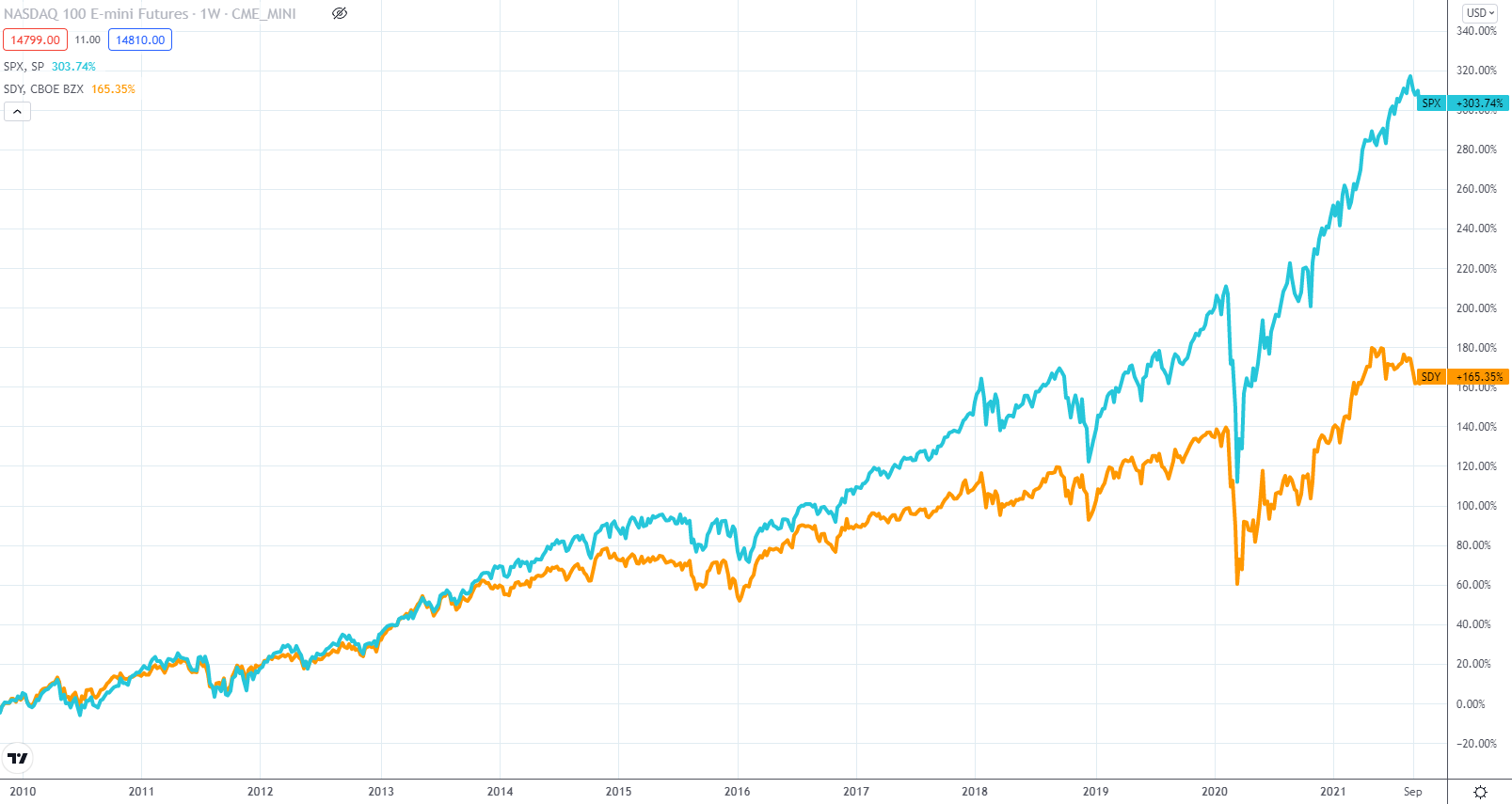Over the years, I have heard many investment stories. As a financial blogger, I wanted to uncover how people can create their personal success through their investments and I realised that it all boils down to a specific formula - the "VFS" formula that sadly most people do not have a keen understanding - which results in not being able to produce consistent results in the stock market.
My benchmark is this - if the S&P 500 is positive for the year and you are having much lower (or negative) returns than the S&P 500 - something needs to be done about your investment portfolio.
To give you a sense, the S&P 500 returns about 13.6% average over the last 10 years (at the point of writing).

The "VFS" Formula To Investment Success
The first is "V" - which stands for volatility.
People always say this - "higher risks gives higher returns".
Personally, I don't like that statement - I will say "higher volatility gives higher returns".
Always remember that volatility is the same as risk - even though many financial academics will suggest that is the case.
The most quoted investor, Warren Buffett once said this:
Risk comes from not knowing what you're doing.
Read that carefully, and you will see that risk is from the lack of knowledge.
Imagine if you are all alone and you are trying to get from Malaysia to Vietnam in the fastest way possible and you are given two options:
- Walk
- Drive a car
- Fly a plane
Some of you might choose to walk, simply because you don't know how to drive a car or fly a plane.
Some of you might choose to drive a car, simply because you don't know how to fly a plane.
Some of you will choose to fly a plane, simply because that's the fastest possible way.
However, among my readers - how many of you actually can pick the plane option? Well, if you are not a trained pilot - you will likely avoid this option - because it is RISKY! You will likely crash and die before you can even reach Vietnam.
Can you see now that risk comes from the lack of knowledge?
Now, put this another way - what if you KNEW how to fly a plane.
Then guess what - you will be able to take advantage of the fastest option available to you.
Let's go back to stock investing. Many people get stuck with poor returns simply because they do not go beyond their comfort zone to explore "higher volatility" investments. Without a higher volatility, you can bet that your returns will not be high as well.
Look at dividend investing for example - it is likely one of the most "low volatility" investment vehicle simply because of its stable nature and therefore attracts risk-adverse investors. Quite clearly, the returns will match these low volatility as well. Take a look at these two comparison:
- SPY - tracks the Standard & Poor's 500 Index, which comprises 500 large- and mid-cap U.S. stocks.
- SDY - comprised of the 50 highest dividend yielding constituents of the stocks of the S&P Composite 1500 Index that have increased dividends every year for at least 25 consecutive years.

SPY vs SDY. Click to expand on image
Now, I want you to notice two things:
- The volatility of the blue line (SPY) is actually higher. You can tell this by observing the price swings percentages.
- The returns of the blue line (SPY) is much higher
This shows a very simple explanation that the higher the volatility, the higher the possible returns. You need to bear this in mind if you truly want to beat the stock market returns.
To beat market returns, your portfolio needs to have a higher volatility.
For those people who do not understand the definition of volatility, this is what it means.
Volatility is the degree of variation of a trading price series over time.
This means that a stock with zero volatility will have ZERO price movement - and quite clearly, that means you will not make a single cent from buying that stock.
For a stock with low volatility, it means that the stock will have very little price movement - and quite clearly, that means that you will not expect a huge capital appreciation from your share price in a short period of time.
For a stock with higher volatility, it means that the stock will have higher price movements - and that is becomes possible for you to have a larger capital gain from your share price in a short period of time.
If you want to have a chance to beat the stock market returns, your portfolio needs to have a higher volatility.
Note that I won't be able to advise you how volatile your portfolio should be - it all depends on how well trained is your emotional muscle to tolerate your portfolio fluctuations.
Portfolio volatility can be achieved in three ways:
- Concentration of portfolio into only a few stocks
- Investing in highly volatile assets
- Both 1 and 2 together.
Personally, I am into the first method, where I tend to concentrate my portfolio in no more than 10 stocks and I use options to increase the volatility.
I also know of people who invest across highly volatile assets such as crypto and growth stocks, and made tons of money over the long term.
There is also a rare group of people who invest a huge amount into a single cryptocurrency. These are the huge bets but very few succeed.
Investing Only In Fundamental Stocks
"Okay so if I want to beat the market, I just need to have a volatile portfolio".
Please hold your horses - volatility is only the first part of the VFS formula. Please don't just anyhow whack the most volatile stock you see and hope that you will become rich - that could be the fastest way to lose all your money.
When it comes to investing, we must always be anchored in "Fundamentals" - and this is the "F" in the VFS formula.
Investing in stocks purely because it is volatile is called gambling. But when you combined it with fundamentals, it becomes investing. Bear that in mind.
Many people are concerned when investing in volatile stocks because they cannot take it when they see their stocks fall by 10% or even 20%. However, when you invest in fundamentally good stocks, you will salivate when even you see your stocks fall.
Think about this in this way - let's say I went absolutely crazy and wanted to sell away my $100 notes.
- On Monday, I was drunk and I offered to sell my $100 note for just $80. Will you buy that $100 note? Of course you would, it is an instant profit of $20.
- On Tuesday, I drank too much again and offered to sell my $100 note for $60! Will you buy that $100 note? Of course you would, it is an instant profit of $40.
Think about this. On Tuesday, I was actually selling my $100 notes for just $60 - it was a whopping $20 drop from my previous offer price!
Why is that people will not say something like this:
"OMG IT WAS $80 on Monday! Now it dropped to $60??? It is going to drop more on Wednesday, I better don't buy first."
Well, the reason is because the fundamental value of the $100 note is still $100 - no matter what the price I am offering to sell to you at.
However, in the stock market, it is not that straightforward. People who do not know how to evaluate stock cannot tell that the stock is undervalued or overvalued - and that's why they never make money consistently in the stock market. They are blindly buying stocks with the hopes of it getting higher in the future.
However, when you buy fundamentally good stocks, you know that it will get better over the long run - no matter how volatile the stock is in the short term.
How To Make Serious Money In Investing
For those who have been following me, you probably heard of me saying that it is silly to keep money in the bank and earning that puny interest.
I personally hate keeping money in the bank, just as much as a boss who wouldn't like to see their employee skiving. I send my money to the stock market and have them make more money for me. You need to be a master of your money.
The way to make serious money in investing lies in the last "S" - which is stake.
The best investors that I know do not need keep money in their bank, instead, they invest most of their net worth into the stock market, business, or properties - basically vehicles that will compound their money faster.
What does stake means? It basically means the amount of money you have put into your investments. This is an extremely important concept.
Let's say you managed to achieve a 100% return during 2020 but you only invested $1,000 - you only made a $1,000 profit. This means that even though it is impressive that you made a 100% return, in terms of dollar amount, it is actually not that much of a huge feat.
This is why "stake" is so important - the dollar amount that you are willing to put in your investments. And quite frankly, this is the biggest gamechanger for me.
Once you master the concept of investing - you will never want to leave a surplus of money in the bank ever again. It is just silly to do so.
The Bottom Line
If you can master these concepts, you will do very well over the long term in investing. What I am writing here are the mindset and concepts that I have found useful when building my first six figures portfolio.
If you like to learn more, you can check out my recorded training here.

The 6-Figures Roadmap
What an engineer did to grow his portfolio from $7,137.68 to $185,352.15 in just 4 years using qualified stocks...so that WORKING AT A JOB was A CHOICE AND NOT A necessity...
